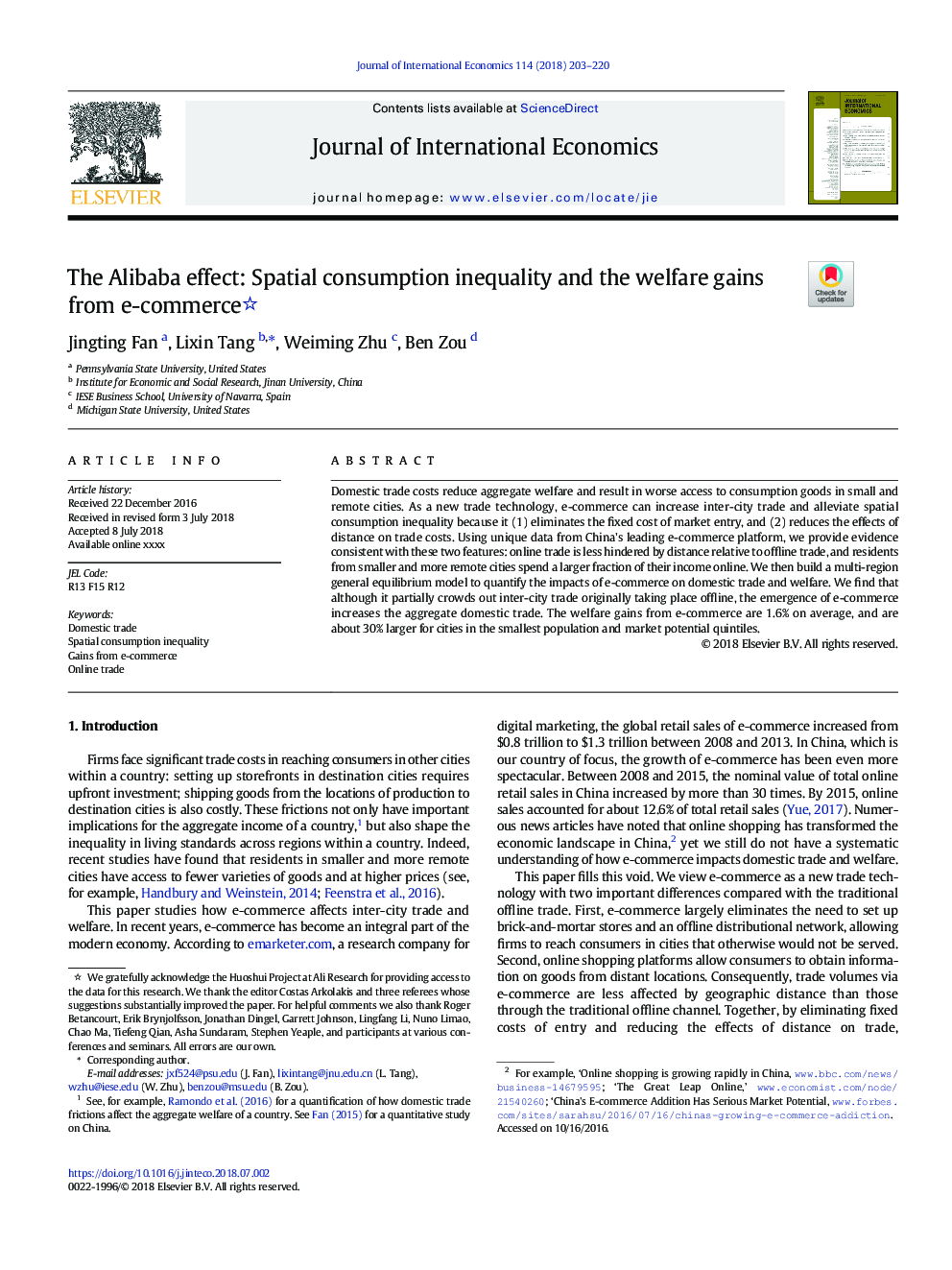| Article ID | Journal | Published Year | Pages | File Type |
|---|---|---|---|---|
| 7363820 | Journal of International Economics | 2018 | 18 Pages |
Abstract
Domestic trade costs reduce aggregate welfare and result in worse access to consumption goods in small and remote cities. As a new trade technology, e-commerce can increase inter-city trade and alleviate spatial consumption inequality because it (1) eliminates the fixed cost of market entry, and (2) reduces the effects of distance on trade costs. Using unique data from China's leading e-commerce platform, we provide evidence consistent with these two features: online trade is less hindered by distance relative to offline trade, and residents from smaller and more remote cities spend a larger fraction of their income online. We then build a multi-region general equilibrium model to quantify the impacts of e-commerce on domestic trade and welfare. We find that although it partially crowds out inter-city trade originally taking place offline, the emergence of e-commerce increases the aggregate domestic trade. The welfare gains from e-commerce are 1.6% on average, and are about 30% larger for cities in the smallest population and market potential quintiles.
Related Topics
Social Sciences and Humanities
Economics, Econometrics and Finance
Economics and Econometrics
Authors
Jingting Fan, Lixin Tang, Weiming Zhu, Ben Zou,
